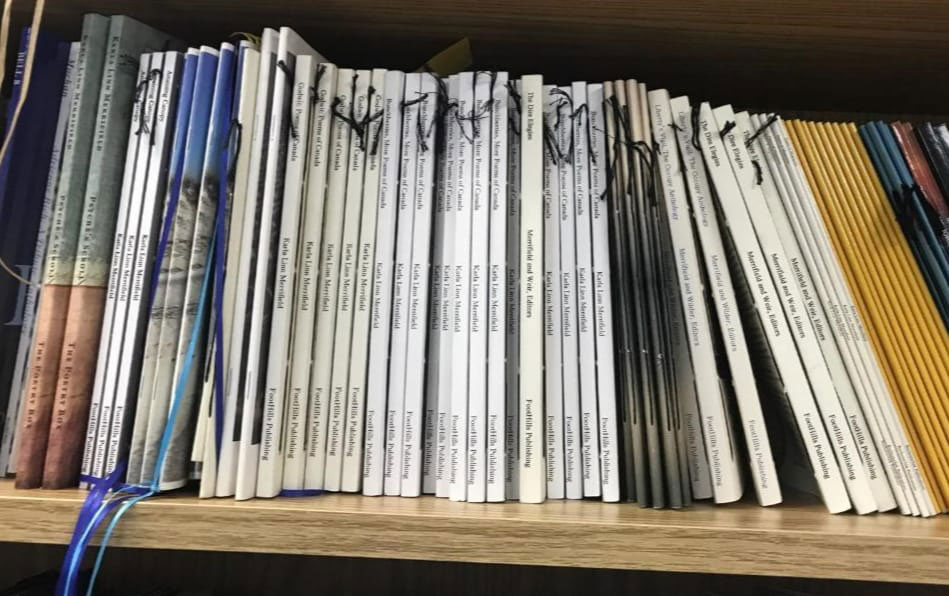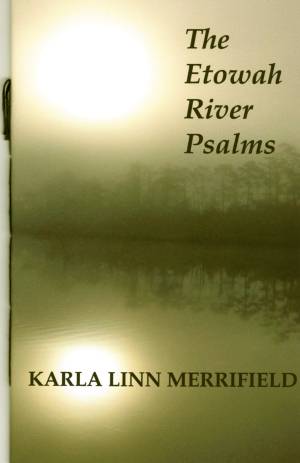The Etowah River Psalms
Published by FootHills Publishing, 2009
Swept Away in the Land of Archetypes
après Robinson Jeffers
Even a giant cedar cannot stand
against the ancient fear of night,
not when that night follows a red sky,
not when the night is in December
and the granite cliff, to which
the tree has clung for two thousand years,
discerns it shall not endure another day.
The Westerlies, the Westerlies,
are coming on Pacific Gorgon winds,
coming to unstone the coast.
The edge will crack;
the sea will claim all there.
So how can I possibly stand against
the most ancient of human fears
of the night? Mine is not a small
worry, is not of world’s end by tsunami
or typhoon. Not of any San Andreas
rending earthquake or the Medusan meltdown
of antipodean ice. Not even of fiery disasters
apocalyptic. Rather, as a moon jellyfish is
when swept far inland onto red lava
sluicing down Whistler Mountain once again,
I am afraid: It is not that I will die,
but that you will be the one so claimed.
DESCRIPTION
“I focus and actually exult” is how poet Karla Linn Merrifield of Kent, NY, succinctly conveys the poetic process of exploring life’s timeless themes – eros, death, time, patience, longing –- in her new chapbook, The Etowah River Psalms.
Merrifield’s is a deeply spiritual and sensual collection in which nature is worshiped and the human-as-animal is integrated into the web of life. Thus, in “The Beholder,” two lovers are united under “shimmering light… under the ancient stars above us. And in “Entering the Garden of the Universe,” what is human in the poem’s speaker is part of the fabric of nature in its entirety: “I now choose to live carnally. / Like the ocean, I have no other god / than gravity.”
The collection was inspired by Georgia poet Beau Cutts’s master poem, “The Etowah,” from which she drew lines that became the kernels for all of the poems in this chapbook. Thus, Cutts originally wrote of “cleansing the inner gray” and Merrifield, borrowing the line, created with it the poem “Darkroom Work,” the first stanza of which is:
Cleansing our inner gray,
we plunge first into black and white,
a glossy emotional tableau
of Ansel’s grandest views:
mountains, mesas, canyons, coulees.
He parses the territory
of our great hearts in full moonlight.
Thus, from one poem about a river flowed the many poems of The Etowah River Psalms.

“I n psalm after riverine psalm here, whether her subject is tongue or Indian summer or the eye or box turtle and moon or mountain or love, Karla Linn Merrifield continues her quest for the center of poetry itself, the primal, and we are glad, by way of her voice, to hear and behold, to draw closer.
– William Heyen, author of Shoah Train: Poems, and Finalist for the National Book Award, about Etowah River Psalms
At first glance, Karla Linn Merrifield’s title, The Etowah River Psalms, may have religious connotations, but for this poet, it is nature that is sacred, and she worships it with profound sensuality, sweeping us downstream on the iconic Etowah River. She writes, “I am your innermost river / throbbing with wild currents within you.” This line epitomizes the rush, the pulse, of her lyric style as she celebrates our kinship with water and nature and with each other. As we participate in this journey, Merrifield asks us to become a river, a whale, a moon jelly, a human lover; to let go and drift and tumble in her imagination.
– Laury A. Egan, Snow, Shadows, a Stranger
Karla Linn Merrifield’s e-mails always end with a foundational statement: “Poetry furthers the sacred.” Indeed, this collection of poems does just that, realizing sacredness in the natural world’s “courtly lovemaking / of my marrow.” Nourished by her own loving encounters with the rivers of life flowing through and around the North American continent, the lands and waters and all that dwell therein — turtles, geese, whales, jellies, bees, humans — Merrifield charts her own slow settling into right relationship with the universe, as herself “a white angel among an abundance / of angels.” With open eyes, hands, heart, and tongue, she explores the fierce delicacy of all bodily life, our own species included: the elemental forces — eros, death, time, patience, longing — that flow through water, earth, fire, air, and all their animate descendants. And in the companionship of these poems, you, too — like the turtles, like the poet, like the ocean — will “have no other god / than gravity.”



